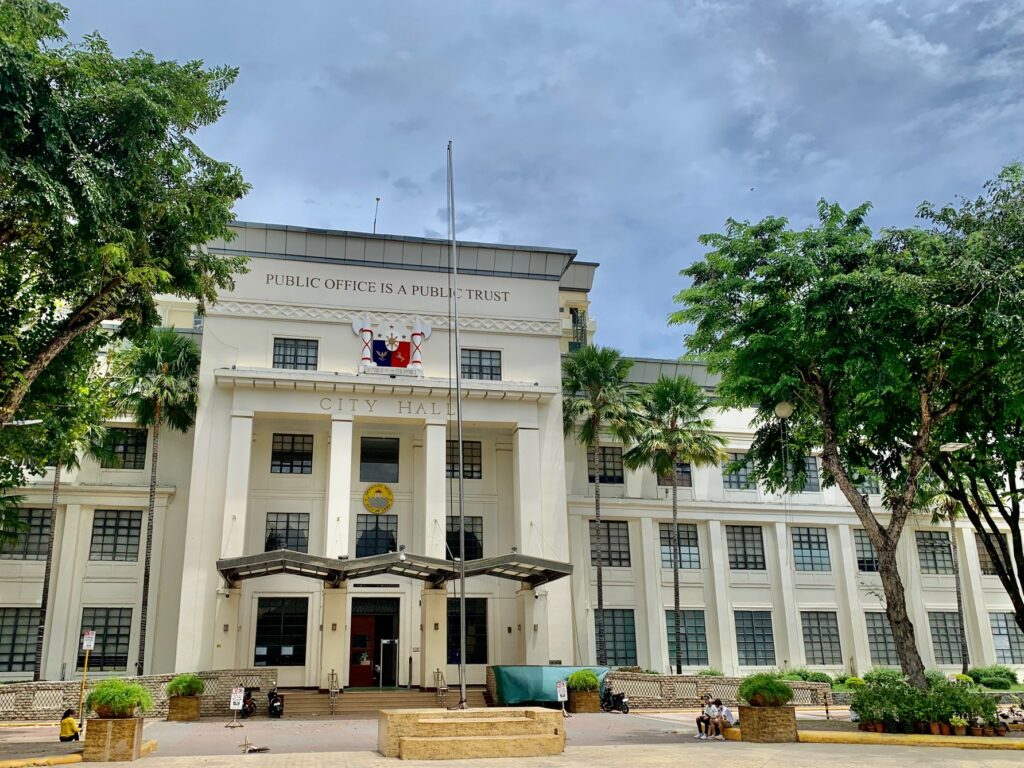
A glimpse of the facade of the Cebu City Hall. CDN Digital photo | Brian J. Ochoa
CEBU CITY, Philippines— Over P114.5 million in fund transfers done by Cebu City to various non-government organizations (NGOs) and people’s organizations (POs) since 2009 remain unliquidated, according to the latest audit report by the Commission on Audit (COA).
The unliquidated funds have translated into financial mismanagement and lack of accountability within the city administration, the audit agency said.
The COA report, audit observation memorandum (AOM) No. 2024-011 dated April 2, 2024, outlines that these fund transfers, meant for the implementation of various programs and projects, were found to be inconsistent with COA Circular No. 2007-001.
This inconsistency has severely affected the reliability of the reported balance as of the year-end.
READ:
COA flags MCWD for unfinished, overdue projects
COA flags Cebu City’s ‘excessive’ cash advances for foreign travel
Among the NGOs and POs flagged in the report, Alay Lakad Inc. has unliquidated amounts totaling P868,540.80 since 2009, with an additional P500,000.00 remaining unliquidated since 2013.
The Association of Barangay Council (ABC) has unliquidated funds amounting to P7,200,780.95 from 2007 to 2019 and an extra P3,750,000.00 unliquidated since 2022.
The Barangay Councilor’s League has P11,898,331.94 unliquidated from 2014 to 2021 and P2,250,000.00 unliquidated since 2022.
Similarly, Lihok Filipina Foundation Inc. has P1,520,075.00 unliquidated from 2008 and P353,750.00 since 2009.
The Philippine Councilors’ League has P982,077.31 unliquidated from 2012, with an additional P450,000.00 unliquidated since 2014.
The Sangguniang Kabataan Federation has P1,704,209.82 unliquidated since 2019, with P20,000,000.00 unliquidated since 2022.
The University of Southern Philippines has P356,266.75 unliquidated since 2008, and the Vice Mayor’s League of the Philippines has P200,000.00 unliquidated from 2006, with another P2,000,000.00 unliquidated since 2022.
Lastly, the Federation of Cebu City South District Association Inc. has had P212,500.00 unliquidated since 2006, with the same amount unliquidated since 2007.
READ:
COA: CCMC project contract price was ‘bloated’ by P62M
COA Circular No. 2007-001 mandates NGOs and POs to submit a final Fund Utilization Report within 60 days after project completion, certified by their accountant and approved by their president or chairman. This report must include an inspection report, a certificate of project completion, and a list of beneficiaries.
However, the failure to comply with these requirements has led to a significant portion of funds remaining unliquidated.
The audit report reveals that the non-submission of liquidation reports has severely hampered transparency and accountability.
Approximately 43.65 percent or P50,008,674.78 of the total balance remained unliquidated due to the non-submission of liquidation reports and supporting documents.
A portion of these unsubmitted reports, about 41 percent or P20,420,087.94, pertained to fund transfers aged between 9 to 17 years.
READ: COA says Cebu City lacks cash reserves for Singapore-like vision
The delays and deficiencies in submitting and processing these reports have thrown reliability into the question of the city’s financial reporting.
A substantial amount of P36,899,703.96 worth of liquidation reports was suspended by the pre-audit section due to missing documentation, with P24,668,466.06 still undergoing pre-audit.
To address these issues, the COA has recommended that the city management review the Memorandum of Agreement to enforce actions against defaulting NGOs and POs, conduct a thorough review of outstanding balances, and adjust impairment allowances to reflect the actual likelihood of collection.
READ: COA should do preventive audit to stop Pharmally-type corruption
Additionally, they suggest implementing a one-time cleansing of all dormant accounts and refraining from granting financial assistance to NGOs and POs with outstanding unliquidated fund transfers.
The City Accountant’s Office (CAO), in their reply dated April 23, 2024, committed to similar initiatives concerning its Due from Local Government Units (LGUs) accounts.

